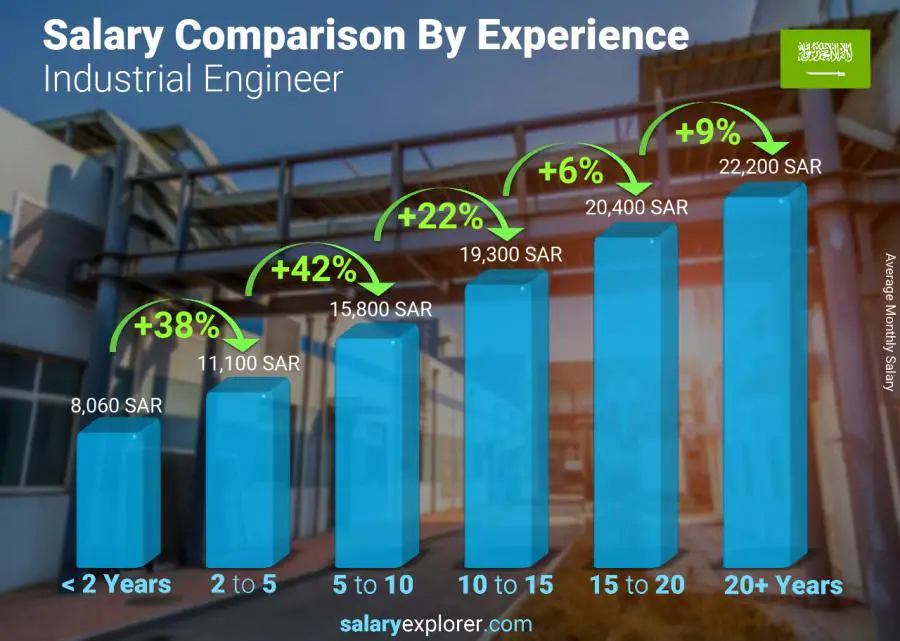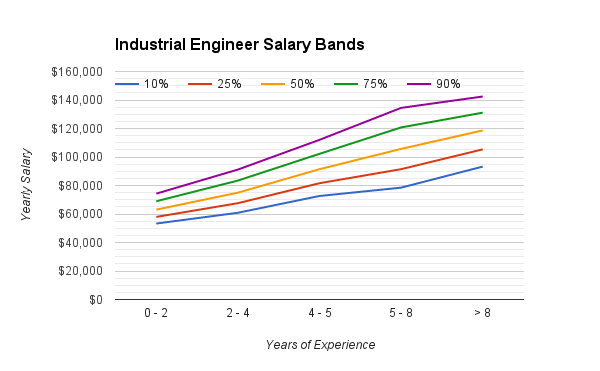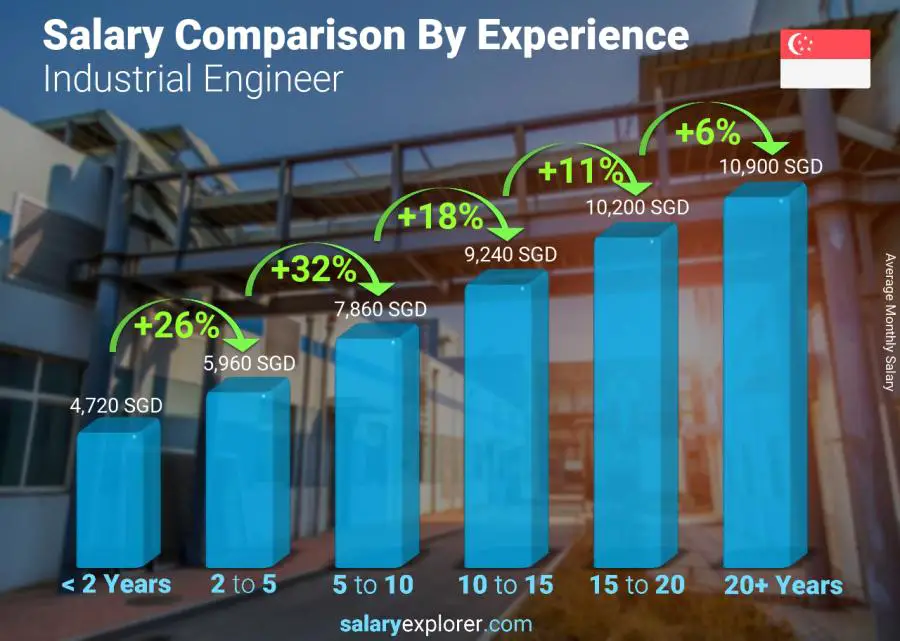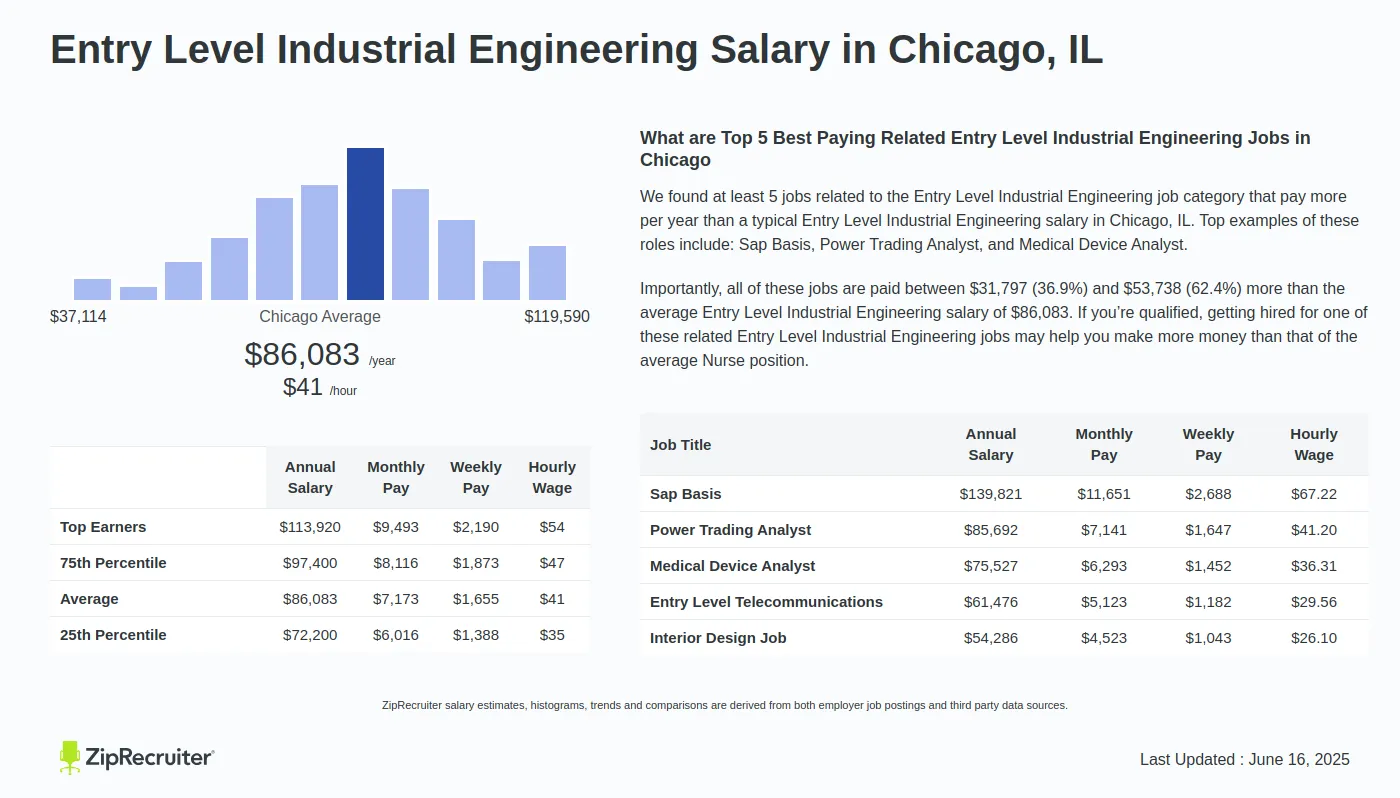Manufacturing Industrial Engineer Salary

Imagine a bustling factory floor, the rhythmic hum of machinery a constant background melody. Amidst this organized chaos, a figure moves with purpose, clipboard in hand, eyes scanning for inefficiencies and opportunities for improvement. This is the domain of the Manufacturing Industrial Engineer, a vital role in today's competitive industrial landscape.
The salary of a Manufacturing Industrial Engineer reflects the critical importance of their work. Their expertise in optimizing processes, reducing costs, and improving productivity translates directly into a company's bottom line.
The Landscape of Manufacturing Industrial Engineering
Manufacturing Industrial Engineers are essentially efficiency experts. They analyze production processes, identify bottlenecks, and implement solutions to streamline operations.
These engineers blend analytical skills with practical knowledge of manufacturing techniques. Their work is a crucial part of ensuring smooth and profitable production cycles.
Responsibilities and Skills
Their tasks are varied and demand a broad skillset. Designing layouts for efficient workflow, implementing lean manufacturing principles, and conducting time studies are just a few examples.
According to the Bureau of Labor Statistics (BLS), Industrial Engineers, in general, are responsible for designing, developing, testing, and evaluating integrated systems for managing industrial production processes including human work factors, quality control, inventory control, logistics and material flow, cost analysis, and production coordination.
The profession calls for a solid understanding of statistical analysis, project management, and communication skills.
Salary Expectations: A Detailed Look
So, what can a Manufacturing Industrial Engineer expect to earn? Several factors influence salary, including experience, education, location, and industry.
Data from sources like Salary.com and Glassdoor provide insights into salary ranges. Entry-level positions might start around $65,000 to $75,000 annually.
Experienced engineers with advanced degrees or specialized certifications can command salaries well into the six figures.
Factors Influencing Salary
Experience is a major driver of salary growth. As engineers gain experience and demonstrate their ability to improve efficiency and reduce costs, their earning potential increases.
Education plays a crucial role. A master's degree or specialized certifications, such as Six Sigma Black Belt, can lead to higher earning potential.
Location matters significantly. Areas with a high concentration of manufacturing industries, such as the Midwest or certain parts of the South, might offer more competitive salaries.
Industry Variations
The specific industry also affects salary. Industries like aerospace, automotive, and pharmaceuticals often offer higher salaries due to the complexity and criticality of their operations.
Engineers working in high-tech manufacturing or with specialized skills in areas like automation and robotics are also in high demand, further boosting their earning potential.
The size and financial health of the company also play a role; larger, more profitable companies tend to offer more generous compensation packages.
Future Outlook
The future looks promising for Manufacturing Industrial Engineers. As companies strive to improve efficiency and reduce costs in an increasingly competitive global market, the demand for their skills will only continue to grow.
Advancements in technology, such as automation and data analytics, are creating new opportunities for these engineers to optimize processes and improve productivity.
The BLS projects steady growth for industrial engineering occupations, indicating a continued demand for skilled professionals in this field.
Becoming a Manufacturing Industrial Engineer is a rewarding career path. These professionals have a tangible impact on a company’s success.
Their ability to combine analytical skills with practical knowledge makes them invaluable assets in the modern manufacturing landscape. A career in this field offers not just a competitive salary but also the satisfaction of making a real difference.


















